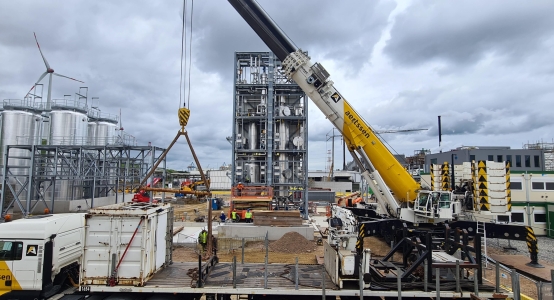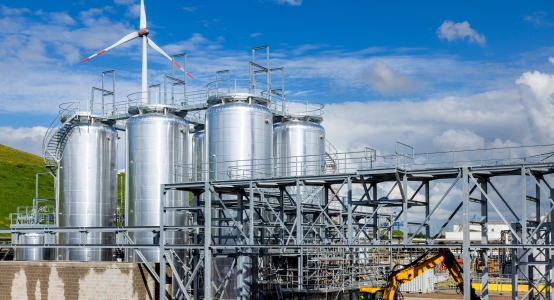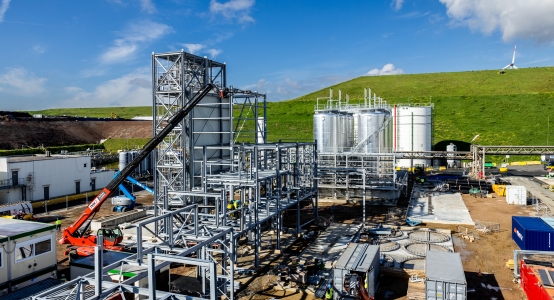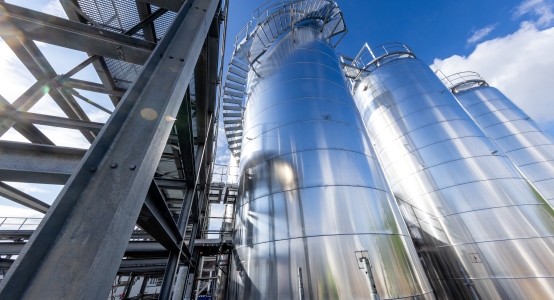From mid-2024, yoghurt pots and foam trays from the blue bag are to be chemically recycled in the port of Antwerp. This is a first in Europe, because it will be possible to convert polystyrene (PS) and extruded polystyrene (XPS) into secondary raw materials to be used to make new packaging, including food packaging. The project is being set up thanks to the construction of a new chemical recycling facility in the port of Antwerp by Indaver, backed by the collaboration with Fost Plus for the supply of PS and XPS from the PMD.
Fost Plus announces the long-term partnership with Indaver’s Plastics2Chemicals demonstration plant for the chemical recycling of (X)PS from household packaging waste. As of 2024, this new facility will convert up to 26,000 tonnes of materials into secondary raw materials by means of depolymerisation. The end product, recycled styrene, will have the same properties as a new material, so it can be used to make new yoghurt pots and meat/fish trays as well as other (X)PS packaging
Our goal has always been to recycle as much plastic as possible in Belgium. This was not yet the case for polystyrene. As of 2024, 3,000 tonnes of PS from the five PMD sorting centres will be recycled chemically. It’s a great story of circularity, Belgian style, that we can be proud of.
Potential for circular trays and pots
Polystyrene is one of the 16 material flows from the blue bag. Both PS and XPS packaging are sorted in this fraction in the sorting centres. Fost Plus has concluded contracts with specific recyclers for their processing. However, mechanical recycling of PS currently has limitations, including as regards the use of r-PS for food packaging without a functional barrier. Plastics2Chemicals combined with the pre-processing plant at Indaver’s Willebroek site offers a solution to this.
It is a major step forward. The current proposed European Packaging and Packaging Waste Regulation (PPWR) states that all plastic packaging will have to contain 10% of recycled material by 2030. This is an ambitious goal, but one that is necessary to protect the environment and our natural resources. The new partnership opens the way for circular trays and pots.
As well as PS, Plastics2Chemicals will also recycle some of the polyolefin materials, including 1,000 tonnes of film from the blue bag. Examples include drinks multipacks packaging and crisp bags.
Figures
- Plastics2Chemicals has an initial capacity of 26,000 tonnes of PS (polystyrene) and PO (polyolefin) and will start up in mid-2024. The plan is to increase its capacity to 65,000 tonnes (2027), making it Europe’s biggest depolymerisation recycling plant.
- The high-tech recycling plant in the port of Antwerp represents an investment of EUR 100 million and 60 new jobs. The Willebroek pre-processing facility involves an investment of EUR 30 million and will create 25 new jobs.
- Ultimately, 3,000 tonnes of PS and 1,000 tonnes of PO from the blue bag will be recycled here.
- Per tonne of PS: saving of 3,500 kg of CO2 compared with valorisation
- Per tonne of PO: saving of 1,500 kg of CO2 compared with valorisation




